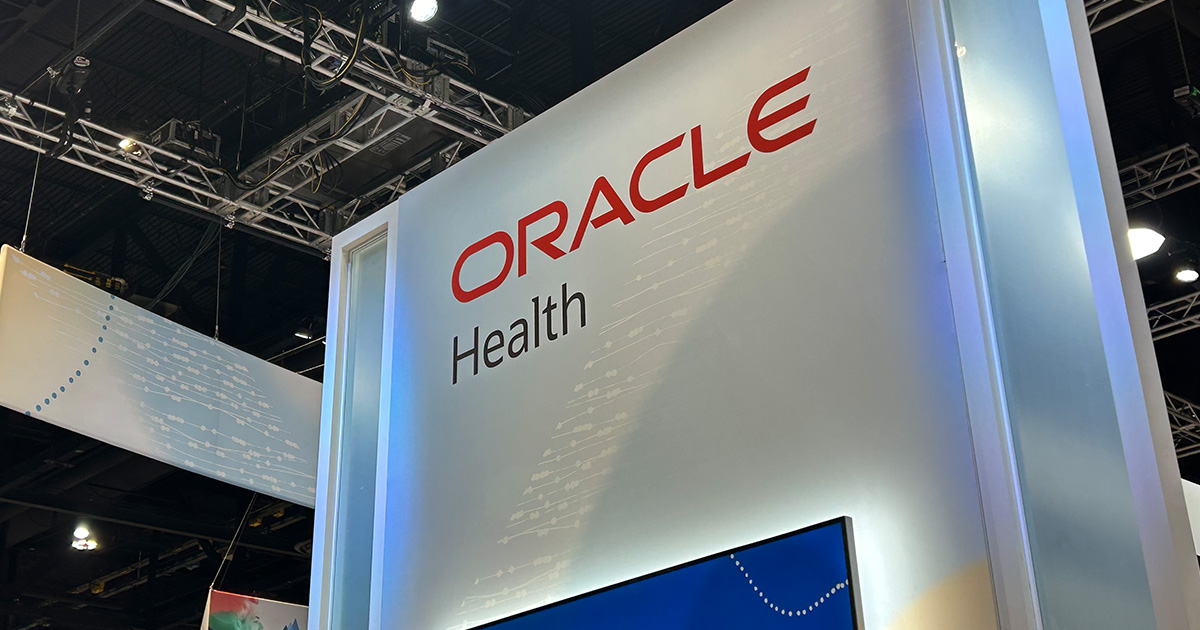CCHIT surprised many in the industry this past week when it announced it would be bowing out of the EHR certification game to focus on advisory services and thought leadership. Alisa Ray, executive director and CEO of the standards and testing pioneer, spoke with Healthcare IT News about the rationale behind that decision.
Q: Why is CCHIT going in this new direction?
A: It's a combination of things. Our board has looked at the ONC certification and testing business — and in particular the new requirements for 2014. It's been very variable, from a business perspective. So in terms of just managing operations and trying to keep a full staff synced through the peaks and valleys, it's been very hard to do.
This is our sole line of business right now, ONC testing and certification. So we're very susceptible — if there are updates in the program that slow things down for a little while, if the vendors don't come right away, then there's a lag in our revenue because we get paid by them needing testing.
And we're actually quite busy right now. We're really pleased, and we think that's a good sign for ONC and the program that the vendors are finally stepping up. But we get out our crystal ball and say, "Hmm, when will the Stage 3 business come on line?" And no one really knows.
So if you're a good board, and you're trying to do a three- to five-year plan around something with so much uncertainty, they just said, "Look, let's just take the resources we do have and pivot into something that's really more aligned with our roots and our original mission as a non-profit."
So that's really it. It's bold move, to exit a business and a revenue stream, but strategically it feels right to align better with what we were created to do.
Q: What sort of thinking went into this? Was it a tough decision?
A: Yes, it was a tough decision because CCHIT, when we started doing our work in 2005 and 2006, we really pioneered EHR certification. We showed that it could be done, it could be done efficiently and reliably. It's something we're very proud of. So yeah, it was something the board spent a lot of time thinking about. It wasn't just a cold dollars and cents reaction, like, "We had a bad quarter." It wasn't like that at all.
Q: What was ONC's reaction?
A: We went and met with them. It was important to let them know. Because we're probably — I don't say this boastfully — but we're probably the leader or one of the largest certifiers, so they needed to be aware. They understand. I think they take it in stride. The way they have crafted the testing and certification program now, they wanted multiple organizations, and I think they contemplated that there might be some sort of in and out.
What they were most concerned with was that we had an adequate transition plan in place that wouldn't be disruptive to the vendors or the certifications that were out there, and then the end users or providers who were relying on those certifications to attest for meaningful use. They were most concerned with with whether we had a plan in place, had we talked with ANSI about it, and that it was following the (ISO/IEC) Guide 65 rules and all of that for maintaining certifications.
And we'd spent a lot of time thinking about that, so we were able to address their questions, and they're OK with it.
Q: And your customers? What's their response been? You've suggested your former competitor, ICSA Labs, as the go-to certifier from here on in for them. What was the thinking behind that?
A: We've spent a lot of time doing one-on-one outreach to our customers to explain to them exactly what is happening, why we're in this situation, and being very clear on what they need to do so there's no disruption in their certification.
The reaction from them is — well, no one's happy. We've had very long-term relationships with some of these customers, so there's a lot of loyalty and trust. We've worked together for a long time. And again, the message for them was, well, their anxiety seemed to calm when they heard about the transition plan, that they weren't going to have any disruptions in their certifications. Mostly what was calming to them, for the ones that were still in process, was the assurance that we would finish out and complete any certification they were in the middle of.
The reason we selected ICSA Labs was that their processes are, from what we know, very similar to ours. And we know some of their people. In fact, some of their key staff were once on my staff, and were trained by CCHIT. So we know they're very competent, very good people. And I think their processes are very similar, and they've also pledged to make sure they have adequate capacity and all that. And they also agreed to take over the maintenance of these customers for no additional charge, for getting started, the maintenance phase. So for us, that seemed like a really good path to offer our customers.
And, of course, the customers may choose to go somewhere else. We'll support that transition too. But we felt we should really think through and lay out a plan for them that would be very easy should they choose to take it.
Q: Could you talk a bit more about some of the frustrations or challenges, whether it's with regard to processes or timeline, from a federal standpoint that might have brought you to this place? Is it that the certification criteria for 2014 are more complex than they were in 2011? Is it that you just can't quite get a good read on where things are going in the future? Is it a combination?
A: That's exactly it. It's exactly those two things. Number one is the increased complexity of the testing process around 2014, and then the second is just trying to understand the timelines —predictability, for a business operations piece.
ONC really raised the bar this time. Everything is quite a bit more complicated. I think they were trying to keep on their timelines — which is laudable, to keep the pace going. But things got off to a slow start. And I think maybe they rushed to open the market a little bit. Maybe the vendors weren't ready. Some of the tools needed more revisions or QA work, and I think this is all stuff that, lessons learned, people have talked about. And I think ONC is very open to how to work with the stakeholders on that and improve it.
I think it's a really good sign now that with the vendors, the pace really has picked up. They are coming through now. We've had a very busy fourth quarter, and we have probably 70 or 75 customers sill in process right now that we're working on in 2014. So it was, I guess I'd say, a bumpy start for the program but it seems to be picking up now and everything's going OK.
Q: So should we read anything deeper into this decision, about where we are with meaningful use and where we're headed? Or is this just what's best for CCHIT?
A: This is really CCHIT's decision about what's best for us. But again, I think you could take a holistic or global view of where our whole industry is with healthcare right now, and there so much happening in terms of overall health reform, and I think everyone is asking what the role is of health IT in that discussion. Is it still front and center as its own driver, or is it more subordinate to supporting other types of reform?
I think it's a really exciting and challenging time in healthcare, but again, getting back to our mission, and providing some thought leadership and really wrestling with some of those questions, I think CCHIT will be able to contribute to that dialogue.
It's a broader role for us. Rather than being in the very narrow niche of just testing and certification services.
Q: Talk a bit, then, about what happens next for you.
A: The trustees are making a bold move to pivot into a new area, and we think the affiliation with HIMSS will really open up more opportunities. CCHIT has always been an organization that works with stakeholders, and having more access to HIMSS membership, more stakeholders that way, will just help.
The first things we have on our docket are summits and events. We'll be hosting the CCHIT Summit at HIMSS14 in Orlando. It's a half-day conference, and we're convening three of the four past national coordinators to talk about the decade of health IT. They'll talk about their tenures, what they got accomplished, their challenges — a little retrospective.
But I think the really unique and exciting is the second part, where we go to the audience, the stakeholders, and ask them, "OK, what about the decade ahead? What didn't these past leaders get done? Let's talk about that and start to craft a framework."
So, summits and events, and the thought leadership that comes out of that, that's the immediate next direction for us. And then you mentioned the deeper focus on more educational advisory services. We'll use our expertise on testing and certification — which is still very deep — to help vendors that are preparing. We'll help educate them on topics or areas that have been challenging for them.
And we know this because we've just spend this whole year trying to bring them along. When you're doing testing and certification, there's only so far you can go in helping them without it being a conflict. But we think we can really help them serve the industry more by taking our knowledge and providing more tailored or more in-depth one-on-one help for these folks, in navigating and understanding these certification requirements.
So those are the two immediate next steps. And then again, our board is newly-reconstituted, it's a very dynamic and thoughtful board. And I think they're going to be looking at extensions on all these things, including trying to look at, perhaps, international opportunities around these areas too.
Q: And the partnership with HIMSS? What will they be bringing to the table?
A: They'll be bringing us scale and access to their membership, and, I think, some cross fertilization between our two boards that will be very valuable. It's very logical for us to work with them. We have the common mission of using health IT to transform and improve care. We have a long history of working with stakeholders, including the provider community, and again, just their scale and scope, both domestically and internationally, it's a really good fit for the type of mission work we want to do.
I think for our organization, our board is making a bold — and risky, perhaps some might say — move, but I think it's with the recognition that, or with an eye on the fact that, the environment needs clarity and thought leadership, and that's something I think we're uniquely positioned to step in and help with.


